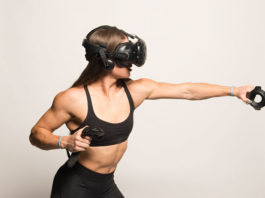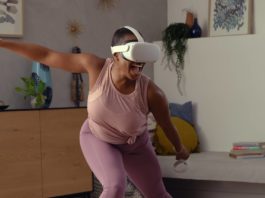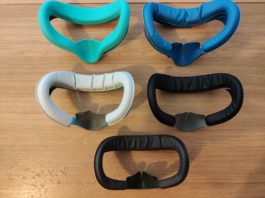Do you think you look like your VR gaming self? Recently, researchers at the University of California, Davis, discovered a link between the appearance of a game player’s avatar and his or her physical performance. The study, published by Jorge Peña, Subuhi Khan, and Cassandra Alexopoulos in the Journal of Computer-Mediated Communication, showed gamers using thin avatars tended to display an increase in physical activity, compared to their gaming counterparts using obese avatars.
Experts think the connection is in how we view ourselves in VR gaming and how that view affects our attitude toward fitness. Gamers using avatars that were the “ideal” version of themselves had a different attitude than those using avatars that were not physically fit.
Overcoming Physical Fitness Challenges
Ask anyone who has struggled with physical fitness and chances are they will tell you a similar story – they want to be more active, lose weight, and attain optimal health, but something always throws them off-track. They can never seem to stick to a plan over the long haul.
Part of the reason their resolution to get fit and improve their health is the inability to see immediate results. For some, it can take months before their efforts pay off, and during that time motivation wavers. Many people give up after just a few weeks when they fail to see dramatic results.
Using a physical fit avatar helps them overcome this challenge. They get the satisfaction of those immediate results and see a better version of themselves right in front of their eyes, which inspires them to stick to their goals. The study showed self-perception is a powerful tool that can be used to help people achieve their fitness goals.
Details of the Study
The study included a group of participants that ranged from normal weight to obese. Regardless of their actual Body Mass Index (BMI) in real life, gamers assigned to thin avatars (BMI set to 18.6) showed increased physical activity, as compared to those assigned to obese avatars (BMI set to 32.1).
The difference in physical activity occurred within the game and in real life. Researchers found gamers who perceived their avatars as more obese showed decreased physical activity in the real world, as well as in the game. Even thin gamers given obese avatars tended to engage in less physical movement while playing.

According to Pena, “I think the findings have real-world applications, such as using avatars in video games to ‘nudge’ people to increase physical activity, or getting people more comfortable with small increases in physical activity before taking on more intense physical routines. [The study] also illustrates that people may show decreased physical activity when they perceive their avatar to be at a disadvantage, like when an avatar is obese and their virtual opponent is thin, and this insight may be applied to the design of virtual characters.”
Your Avatar – Providing the Inspiration You Need
What’s the bottom line? The research reveals it is possible for gaming to have a positive effect on physical fitness and health. Non-stop gaming is unlikely to improve your health, but there appears to be a connection between how you see yourself (your avatar), your performance, and your overall commitment to health.
This is great news for gamers and for those looking for an extra boost to help them stick to their fitness goals.
The study shows it’s possible to use video gaming and virtual reality to help you get fit, even if the game isn’t focused on fitness. Any virtual reality game that allows you to change your self-perception can play a role in helping you become a more active person.
So can VR technology help you get fit? It seems it can. Healthy living and being physical fit is about making lifestyle changes that are sustainable over a long period of time. This requires more than just sticking with an exercise program – it requires a shift in thinking. This study shows your gaming avatar can help you with this shift in thinking and enable you to keep the mindset needed to stay on track with your fitness goals.
-Michael De Medeiros
Do you have know a study that shows how VR can positively impact on your fitness? Post your feedback in the comments sections and one of our editors will get back to you ASAP!




